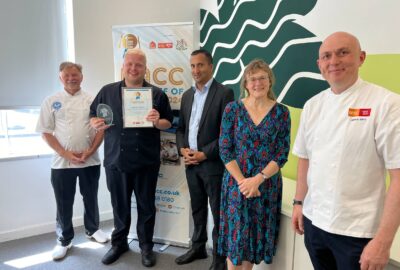A comprehensive and easy-to-follow manual to help make it easier for care staff to cater for many different diets has been praised by the NACC.
The ‘Dietary Diversity in the Care Sector’ guide was created by charity Vegetarian for Life (VfL) after new research showed that the number of vegans in UK residential care homes has risen 167% in the past five years. Staff from a representative sample of 1,000 UK care homes took part in the research, commissioned by VfL. When asked what support they most needed to cater for vegetarians or vegans, care staff highlighted that their most sought-after resources were recipes and meal plans.
With allergies, intolerance’s, and autoimmune diseases becoming increasingly relevant to the care sector, they are also given extensive coverage in the guide. Most people diagnosed with coeliac disease are over 50 years of age. The guide is being sent out free-of charge to all establishments on VfL’s UK List– a directory of care organisations that have pledged to cater well and ethically for older vegans or vegetarians in their care.
Guidance is given on how to adapt the recipes for different diets with clear symbols for each, making it simple and straightforward to follow. Last but not least, best practice in ethical dilemmas is offered – including when a vegetarian asks for meat. The guide has been praised by Sophie Murray, deputy chair of the National Association of Care Caterers (NACC).
Ms Murray, who is also head of nutrition at Sunrise Senior Living, said that the guide will be a great resource for those preparing vegetarian and vegan food. Ms Murray went vegetarian for a month earlier this year and has since incorporated more meat-free meals into her diet. She said: “After a month of new cookbooks and eating vegetarian food I can honestly say I enjoyed every minute. I felt more energetic and the discipline was also good although as a nutritional therapist I already am very aware of the effect of food on the body.
“The guide will be a great resource for those catering for those in care who are vegetarian, vegan or need specific dietary requirements.”
Amanda Woodvine, chief executive of Vegetarian for Life, said: “We are excited about launching this guide and training programme, because we know it is going to make catering for special diets a lot easier.
“Whether the reason for a person’s dietary choices is medical, religious, or philosophical beliefs, we have a duty to cater for everyone in an inclusive way. “So, the guide and half-day training sessions are aimed at making it simpler to do that. “This is, of course, a guide only – the best way to find out what is suitable for a service user is to ask them. No one knows more about their dietary, religious or philosophical needs than they do.”
Visit vegetarianforlife.org. uk/resources/publications to download a copy of the guide, or order from the charity on 0161 257 0887.


